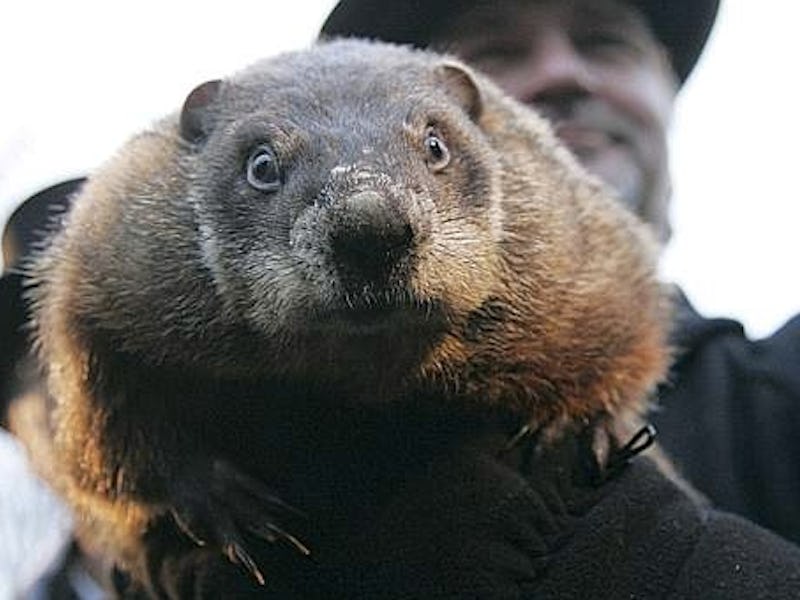Climate Change to Punxsutawney Phil: You're Fired!

The star of Groundhog Day was said to be in an “unusually feisty” mood on Thursday as he revealed that six more weeks of winter lie ahead in 2017. Perhaps Punxsutawney Phil’s excess energy was just a case of nerves: he is, after all, about to lose his job. His sole responsibility is to tell humans whether spring will come early, but as winters rapidly grow milder, we’re not exactly going to need his advice.
Poor Phil: Scientists have been telling him to start looking for a new job for decades, but the current administration’s stance on climate change is only likely to get him fired sooner. In a 2013 analysis of winter temperatures across the United States by Climate Central, scientists found that, while average national temperatures have increased by 1.3 degrees Fahrenheit over the past century, “warming varies seasonally, and it’s winter that has seen the fastest warming.”
If only it were this easy.
When they looked at the changes in winter temperatures by state, they found that 75 percent of them had gotten warmer — specifically, those that generally experience colder winters. North Dakota and Montana felt the heat the most, with a temperature increase of +0.424 and +0.367 degrees Fahrenheit per decade, while Alabama felt it the least, with its average winter temperature actually dropping by -0.245 degrees.
Phil’s home state, Pennsylvania, ranked 27th on the list. Februaries in Pennsylvania are usually pretty cold — the average high tops out at 44 degrees — but if the winter temperature there continues to increase by +0.162 degrees per decade, then it would be less than 60 years before he becomes officially obsolete. In Pennsylvania, the average high temperature in March — when spring begins, and humans should be able to feel a change in the air — is 53 degrees. If climate change trends continue, that 9-degree gap can be closed in a little over 55 years.
A lot can happen in a 55 years: Humans are poised to lose 5,500 feet of Alaska’s North Coast, more than 55,000 square miles of permanent surface water, and, well, pretty much all of the Arctic ice on the planet, if Science’s prediction that the first ice-free Arctic summer will occur in 2045. In some ways, 55 years is not very long at all, but at least for Phil — assuming he’s not a climate change denier — it leaves plenty of time to consider a new career path.